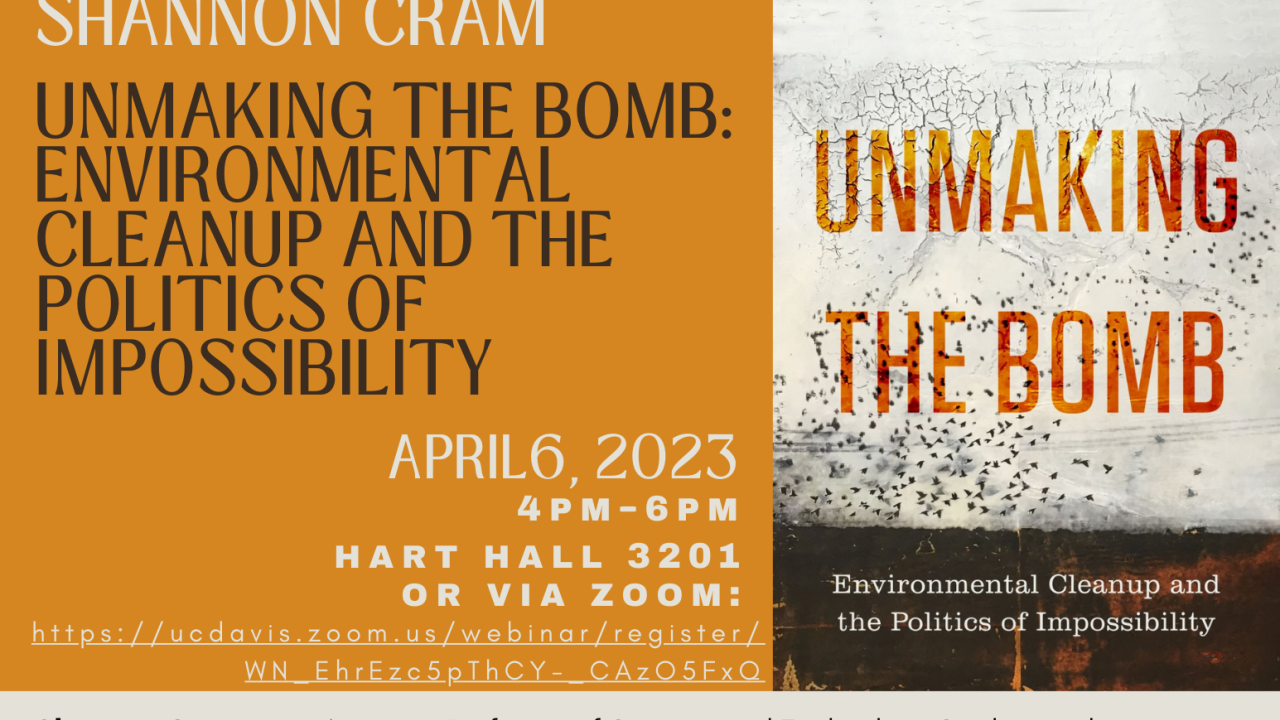
Event Date
Event Date
Location
Hart Hall 3201 or via Zoom
Shannon Cram is an Assistant Professor of Science and Technology Studies at the University of Washington Bothell. She is the author of "Unmaking the Bomb: Environmental Cleanup and the Politics of Impossibility" (forthcoming from University of California Press).
What does it mean to reckon with a contaminated world? Shannon Cram investigates the social politics of this question at the Hanford Nuclear Reservation, a former weapons complex in Washington State. Home to the majority of the nation’s high-level nuclear waste and its largest environmental cleanup, Hanford is now tasked with managing toxic materials that will long outlast the United States and its regulatory capacities. This talk considers the structural impossibilities associated with Hanford’s cleanup as well as the normative categories that inform atomic hazard. It recognizes that multi-millennial waste will inevitably exceed its institutional containers, and that administering eternity has unthinkable, science-fiction-like qualities. But it also explores the powerful conditions and contexts that define unthinkability itself—the social relations that designate some impacts as reasonable and others inconceivable, allowing cleanup to distribute survival unevenly. Thus, it considers both the concrete and constructed realities of contaminated life, and the oft-blurred boundaries between the two.
What does it mean to reckon with a contaminated world? Shannon Cram investigates the social politics of this question at the Hanford Nuclear Reservation, a former weapons complex in Washington State. Home to the majority of the nation’s high-level nuclear waste and its largest environmental cleanup, Hanford is now tasked with managing toxic materials that will long outlast the United States and its regulatory capacities. This talk considers the structural impossibilities associated with Hanford’s cleanup as well as the normative categories that inform atomic hazard. It recognizes that multi-millennial waste will inevitably exceed its institutional containers, and that administering eternity has unthinkable, science-fiction-like qualities. But it also explores the powerful conditions and contexts that define unthinkability itself—the social relations that designate some impacts as reasonable and others inconceivable, allowing cleanup to distribute survival unevenly. Thus, it considers both the concrete and constructed realities of contaminated life, and the oft-blurred boundaries between the two.
For more information please contact Kaitlin Dabdoub (kndabdoub@ucdavis.edu)
Event sponsored by Cultural Studies Graduate Group and the Critical Militarization, Policing and Security Studies Research Cluster with funding from the Davis Humanities Institute
Documents
